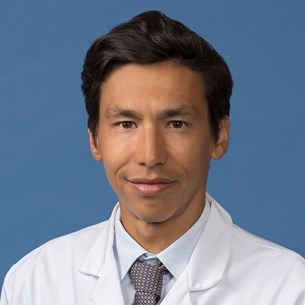Meeting
2019 Genitourinary Cancers Symposium

University of California Los Angeles, Los Angeles, CA
Jeremie Calais , Johannes Czernin , Wolfgang P Fendler , David Elashoff , Nicholas George Nickols
Background: Salvage radiotherapy (SRT) for prostate cancer (PCa) biochemical recurrence (BCR) after radical prostatectomy (RP) is commonly initiated in patients with PSA < 1 ng/mL, a threshold at which standard-of-care imaging is insensitive for detecting recurrence. The purpose of this randomized phase 3 trial is to evaluate the success rate of SRT for PCa BCR after RP with and without planning based on 68Ga-PSMA-11 PET/CT (PSMA). Here we present the study protocol. Methods: This is an interventional phase 3 randomized prospective open label clinical trial with parallel assignment designed for superiority. Patients who are planned to undergo SRT for PCa BCR with PSA > 0.1 ng/ml are eligible. The choice of treating the prostate bed with/without pelvic lymph nodes, with/without androgen deprivation therapy, is left to the discretion of the treating radiation oncologist (RO). RO may or may not change the RT plan depending on the PSMA findings. Any other imaging is allowed for SRT planning if done per routine care. The primary endpoint is the success rate of SRT measured as biochemical progression-free survival (PFS) after initiation of SRT. Biochemical progression is defined by PSA≥0.2 ng/mL and rising. Based on literature data we hypothesized that 1) the incorporation of PSMA to SRT planning will improve 5-year PFS by 20%, 2) the 5-year PFS will be 60% in standard Arm 1 and 80% in interventional Arm 2, and 3) 13% of subjects randomized to Arm 2 will have extra-pelvic metastasis detected by PSMA and will not be included in analysis of the primary endpoint. We will randomize 193 patients (1:1.13 ratio) to proceed with standard SRT (n = 90) or undergo PSMA scan (free of charge for patients) prior SRT planning (n = 103). Patients will be followed for 5 years after the date of initiation of SRT. Discussion: Main pitfalls in study design include 1) drop-out of patients randomized to the control arm and 2) potential FDA approval of PSMA PET imaging probes in the near future (no randomization to standard arm would be then acceptable). This is the first prospective randomized phase 3 trial designed to determine whether PET/CT can improve outcome of SRT in patients with BCR. Clinical trial information: NCT03582774
Disclaimer
This material on this page is ©2024 American Society of Clinical Oncology, all rights reserved. Licensing available upon request. For more information, please contact licensing@asco.org
2019 Genitourinary Cancers Symposium
Trials in Progress Poster Session
Trials in Progress Poster Session A: Prostate Cancer
Prostate Cancer,Prostate Cancer
Prostate Cancer - Localized Disease
NCT03582774
J Clin Oncol 37, 2019 (suppl 7S; abstr TPS136)
10.1200/JCO.2019.37.7_suppl.TPS136
TPS136
N1
Abstract Disclosures
2024 ASCO Genitourinary Cancers Symposium
First Author: Boris A. Hadaschik
2022 ASCO Annual Meeting
First Author: Wesley R Armstrong
2024 ASCO Annual Meeting
First Author: Shingo Hatakeyama
2019 ASCO Annual Meeting
First Author: Jeremie Calais